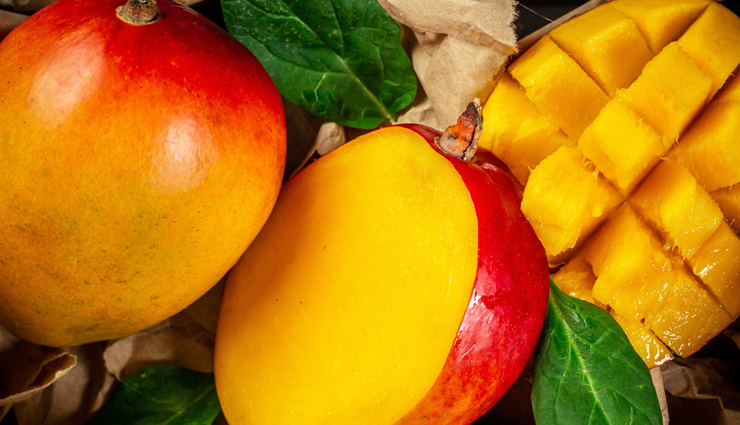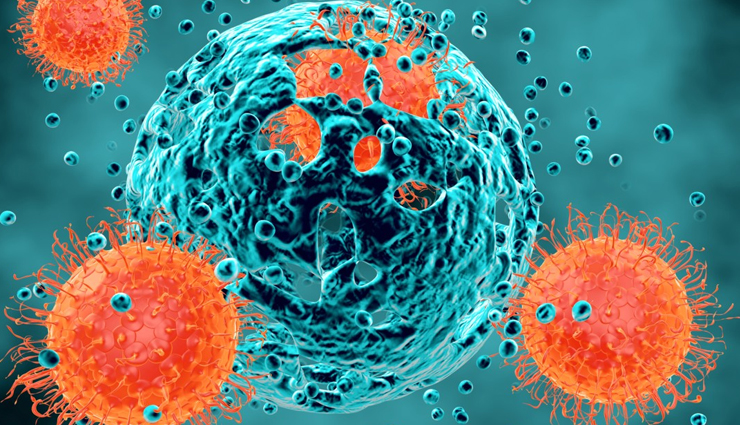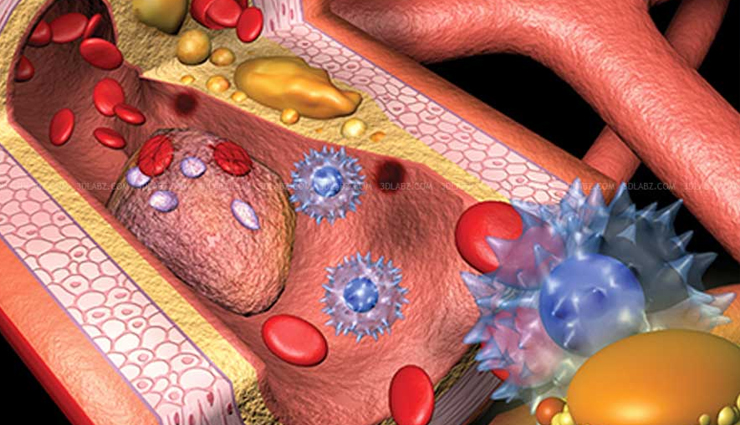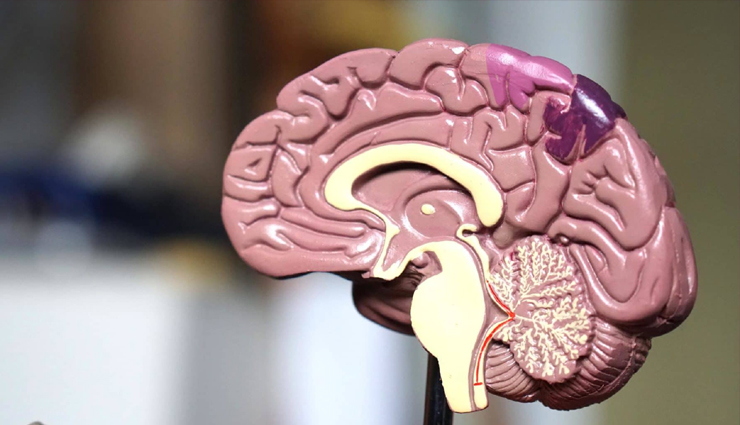- Home›
- Healthy Living›
- 9 Incredible Health Benefits Of Mangoes
9 Incredible Health Benefits Of Mangoes
By: Priyanka Maheshwari Sat, 03 Apr 2021 3:31:29

Mango is also known as the 'king of fruits'. Mango is native to India and Southeast Asia and has been cultivated for over 4,000 years. There are hundreds of types of mango, each with a unique taste, shape, size and color. This fruit is not only delicious but also boasts an impressive nutritional profile. The mango fruit contains about twenty different minerals and vitamins and is among the most nutrient-dense fruits available. Mango is a nutritionally-rich fruit. 165 g of sliced mango contains 99 kcal Energy, 1.35 grams of protein, 24.7 grams of carbohydrate, 2.64 grams of dietry fiber, 0.627 grms of fat, 60.1 mcg of vitamin C and 1.2 mg of calcium. The fruit also contains nutrients such as vitamin A, riboflavin, niacin, magnesium, manganese, and phosphorus. Mango is low in calories yet high in nutrients — particularly vitamin C, which aids immunity, iron absorption and growth and repair. Lets look at the health benefits of mangoes.

# Cancer
Mango is high in carotenoids, ascorbic acid, terpenoids, and polyphenols, which have anticancer properties. A 2014 study from Japan found that carotenoid-containing fruits and vegetables such as mangoes may reduce the risk of colon cancer.
Test-tube and animal studies found that mango polyphenols reduced oxidative stress and stopped the growth or destroyed various cancer cells, including leukemia and cancer of the colon, lung, prostate and breast.
The anticancer properties of mango are also attributed to mangiferin, a compound primarily found in the fruit. A mouse study conducted by the Industrial Toxicology Research Centre found that lupeol, a triterpene found in mangoes, may help fight against prostate cancer.
While these studies are promising, human studies are needed to better understand mango polyphenols anticancer effects in people.

# Improve Immunity
Mango is a good source of immune-boosting nutrients. The fruit contains vitamin A. This nutrient possesses antioxidant properties that may improve immune health. One cup (165 grams) of mango provides 10% of your daily vitamin A needs. Vitamin A is essential for a healthy immune system, as it helps fight infections. Meanwhile, not getting enough vitamin A is linked to a greater infection risk. Mango also contains folate, vitamin K, vitamin E and several B vitamins, which aid immunity as well.

# Reduce The Risk Of Heart Disease
Mangoes help reducing body fat and control blood sugar levels. This fruit offers potassium and magnesium that may reduce the risk of heart disease. It offers magnesium and potassium, which help maintain a healthy pulse and your blood vessels relax, promoting lower blood pressure levels. Mango also contains a unique antioxidant called mangiferin. Mangiferin protect heart cells against inflammation, oxidative stress and apoptosis (controlled cell death). Mangoes are a rich source of beta-carotene. Carotenoids may reduce heart disease risk by preventing the oxidation of cholesterol in the arteries. Increasing potassium and decreasing sodium in the diet are among the most important dietary changesTrusted Source a person can make to reduce their risk of high blood pressure.

# Improve Digestion
Mango contains a group of digestive enzymes called amylases. Digestive enzymes break down large food molecules so that they can be easily absorbed. Moreover, since mango contains plenty of water and dietary fiber, it may help solve digestive problems like constipation and diarrhea. A study conducted by the Texas A&M University found that the polyphenols in mangoes may relieve the symptoms of constipation.

# Eye Health
Mango contains two key nutrients are the antioxidants lutein and zeaxanthin. Fruits of various colors, in general (including mangoes) are a rich source of zeaxanthin and invariably help improve eye health. Mangoes also contain lutein that promotes vision health. Mangoes are also a good source of vitamin A, which supports eye health. Vitamin A deficiency can even lead to blindness. Vitamin A improves eye health and vision. Specifically speaking, the vitamin is essential for the optimal functioning of the cornea.

# Improve Hair and Skin Health
Mangoes also support hair health, as they provide a good amount of vitamin A. This nutrient helps the skin provide an oily substance called sebum, which moisturizes the hair. Vitamin A is also necessary for the growth of all bodily tissues, including skin and hair. Mango are also rich in Vitamin C. This vitamin is essential for making collagen — a protein that gives structure to your skin and hair. Collagen gives your skin its bounce and combats sagging and wrinkles. Aside from vitamins A and C, mango is high in polyphenols, which function as antioxidants. These antioxidants help protect hair follicles against damage from oxidative stress

# Treat Diabetes
Eating mangoes may help treat diabetes. A 2019 mouse studyTrusted Source into mango leaves found that some plant compounds had a powerful effect on risk factors for diabetes. These included lower body weight, reduced blood sugar levels, and lower levels of fats in the blood. This study does not clarify whether or not mango flesh provides the same benefits. Another study conducted by the Central Food Technological Research Institute proved that the extract of a mango peel has antidiabetic properties. Another study conducted by the Suzuka University of Medical Science showed that the mangiferin in mangoes may have beneficial effects in those with type 2 diabetes.

# Lower Cholesterol
Mango contains mangiferin that helps in reducing Cholesterol level. In a study conducted by the University of Madras found that mangiferin in mangoes increase the levels of HDL (high-density lipoprotein), the good cholesterol.

# Promote Brain Health
Mangoes contain vitamin B6 which promote brain health. Some research shows that vitamin B6 deficiency could increase the risk of depression and seizures. Ram-Eesh Institute of Vocational and Technical Education conducted mice study which proved that mango extracts contain certain principles that may enhance memory.
Mangoes May cause allergies
Consumption of mangoes is generally considered safe. However, some may be sensitive to mangoes that may cause allergies and contact dermatitis. Certain individuals were found to be allergic to mangoes. These allergies include contact dermatitis, food hypersensitivity, etc. They are associated with a condition called the mango latex allergy. It also can cause extreme irritation at the angles of the mouth, lips, and the tip of the tongue.





